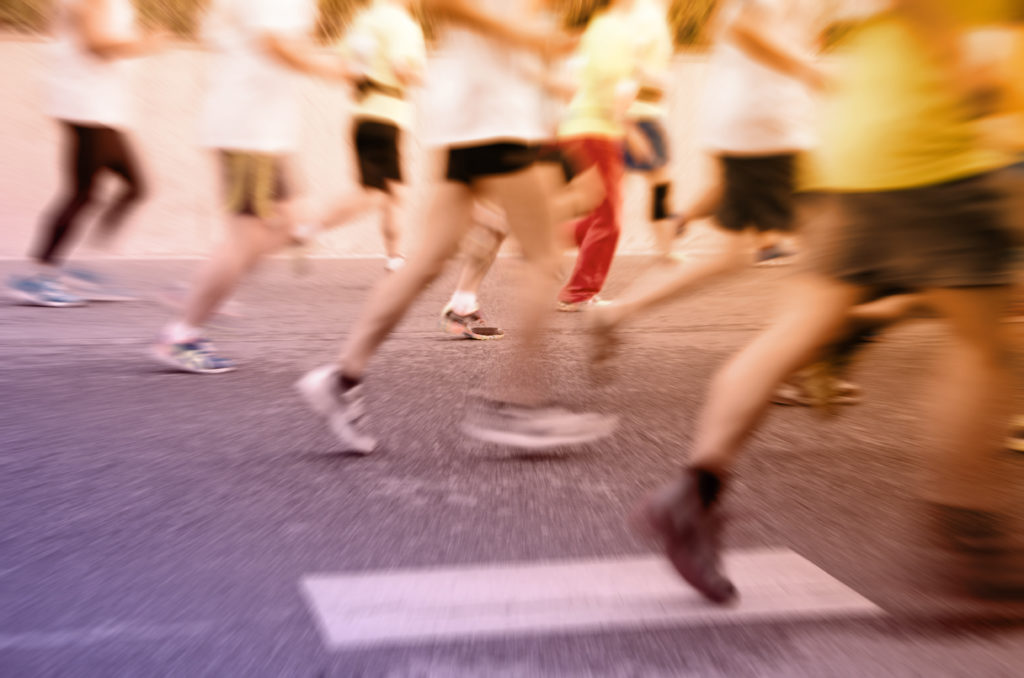Quick Hits
Daily brief research updates from the cognitive sciences

This is an older study (2017) I came across and found fascinating. As many of you regular readers will know I have reported many times on the benefits of exercise. But this study was fascinating in that it looked at the contagion effect of exercise i.e. do people affect each other with the exercise bug?
To answer that question the researchers analyses data from a global network of 1.1 million runners over a period of five years and in addition 3.4 million social network ties. That’s a lot of data! What did they find?
Well, yes there is social contagion, runners do infect each other but the specifics are quite interesting. For example, it was found that both men and women influence men (men more than women) but that men do not influence women. Another interesting influence is that of being faster or slower runner. It was found that those who were slightly slower of faster influenced other most.
Read the paper for more interesting insights but of note is that exercise (in this case running) is infectious but how infectious depends on certain other factors such as closeness, gender, and how good you and your friends are – or not.

Andy Habermacher
Andy is author of leading brains Review, Neuroleadership, and multiple other books. He has been intensively involved in writing and research into neuroleadership and is considered one of Europe’s leading experts. He is also a well-known public speaker speaking on the brain and human behaviour.
Andy is also a masters athlete (middle distance running) and competes regularly at international competitions (and holds a few national records in his age category).
Reference
Aral, S., and Nicolaides, C. (2017).
Exercise contagion in a global social network.
Nat. Commun. 8.
doi:10.1038/ncomms14753.
More Quick Hits
Smartphones Improve Your Memory
Quick HitsDaily brief research updates from the cognitive sciencesany people believe that using smartphones and other electronic devices is ruining our memories and ability to think or simply use our brains. Research has shown a more nuanced...
How Meditation Helps Pain In Your Brain
Quick HitsDaily brief research updates from the cognitive sciences es, meditation can help with pain by changing your experience of it. I reported on that here. Another piece of research just published shows that how experienced meditators and...
When Stress Is Good For Brain Functioning
Quick HitsDaily brief research updates from the cognitive sciences tress gets a bad rap – understandably it is a negative experience and has been shown over long periods of time, and with high intensity, to cause multiple negative outcomes, from...
Put Your Smartphone Down and Let your Mind Wander – You’ll Be Happier
Quick HitsDaily brief research updates from the cognitive sciences here’s a lot been said about smartphone usage and how it can be used and abused. Most of this concern revolves around usage in children or teenagers, however, with some research...
The Amazing Impact Of Reaching Out To Your Old Friends
Quick HitsDaily brief research updates from the cognitive sciences few weeks ago a friend I hadn’t seen for about 10 years sent me a message and asked if I had time to meet up. I was elated. "Sure," I immediately messaged back, "when and where?!"...
Really? Belief In Conspiracies Not Increasing
Quick HitsDaily brief research updates from the cognitive sciences e may feel like we’re in an age of conspiracy theories, that social media is turbocharging the wild and wacky theories, and the so-called information bubbles are sending people down...






